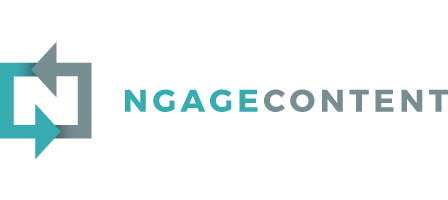Our Responsible AI Policy as an Inbound Marketing Agency
At NgageContent, we specialize in writing human-focused copy designed to encourage conversions for our clients. We will never use AI for a final deliverable as it has multiple limitations, including:
- Little emotional intelligence
- Lack of originality
- The tendency to give inaccurate information
Not to mention, the copyright implications of using AI are still unclear. If you use a large language model (LLM) like ChatGPT to create content, your business technically doesn’t own the rights to that information. And, if you put trade secrets or confidential information into an LLM, that could spell major issues for your organization.
Additionally, it’s known that using AI in marketing copy is a sales killer. Using AI reduces consumer trust and purchase intent across various product categories. All in all, it’s better to rely on humans to write your copy. Only a human understands the emotional needs of other humans and can write persuasive arguments for a client to consider your product.
However, as an inbound marketing agency NgageContent recognizes that AI is and will continue to impact the marketplace. While AI has the potential to create content and add efficiency to myriad business operations, we’re taking a purposeful approach to use it responsibly.
Here’s how we think about AI as an inbound marketing agency:
- We believe in the responsible design, development, deployment and operation of AI technologies.
- We believe in a human-centered approach to AI that empowers and augments professionals. AI technologies should be assistive, not autonomous.
- We believe that humans remain accountable for all decisions and actions, even when assisted by AI. The human must remain in the loop in any AI-assisted applications.
- We believe in the critical role of human understanding and experience, and place specific value on the expert knowledge of subject matter experts. It’s the individual knowledge and expertise held internally that differentiates a company.
- The human touch must be present in all finished work completed for a client.
- We believe in understanding the limitations and dangers of AI, and considering those factors in all of our decisions and actions.
- We believe in an open approach to sharing our AI research, knowledge, ideas, experiences, and processes in order to advance the industry and society.
- We commit to never knowingly use generative AI technology to deceive; to produce content for the sole benefit of financial gain; or to spread falsehoods, misinformation, disinformation, or propaganda.
- We believe that transparency in data collection and AI usage is essential in order to maintain the trust of our audiences and stakeholders.
- We believe in partnering with organizations and people who share our principles.
